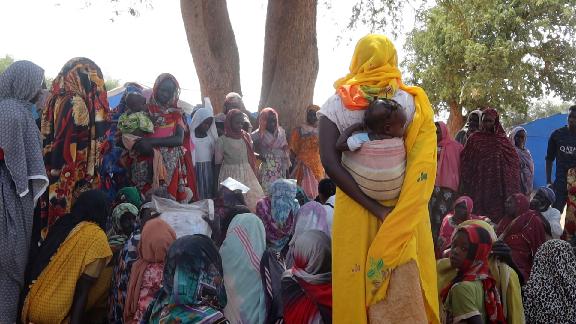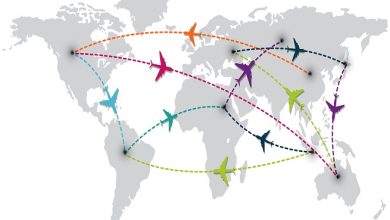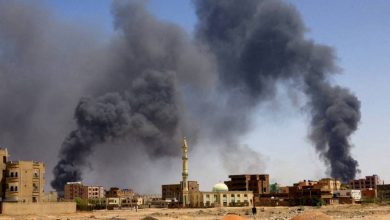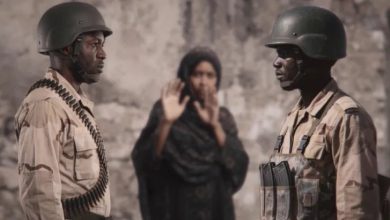Reports
Arab fighters killed Babies, boys and men in war on. Sudan tribe :special report (2-2)

Agencies – Sudan Events
Masoud Mohammed Youssef, the coordinator of an umbrella group that represents some of the Arab tribes in El Geneina, said the Masalit are “fabricating” stories to sway public opinion. The accusation that Arab militias and the RSF targeted male Masalit children and adults was “baseless,” he said.
The only Masalit who “were killed in the fighting in El Geneina,” he added, were armed fighters. “The rest of society, they lived,” he said. Arab tribal leaders have previously blamed the Masalit for instigating the violence.
The RSF didn’t respond to questions from Reuters. In prior statements, the paramilitary has said it wasn’t involved in what it called a tribal conflict in El Geneina.
The war against the Masalit erupted amid a broader conflict between the Sudanese Armed Forces and the RSF, partners in a 2021 coup that crushed hopes for a transition to democracy in Sudan. They began battling in the capital Khartoum in April, after splitting over how to apportion power in a proposed shift toward civilian rule.
In early December, the United States determined that both the RSF and the Sudanese army have committed war crimes since fighting broke out and spread to Darfur. Secretary of State Antony Blinken said the RSF, which draws its forces largely from Arab groups, and its allied militias have also committed crimes against humanity and ethnic cleansing. Both the army and the RSF have blamed each other for any abuses committed in the war.
Clubbed to death
Abdullah Omar Abdullah, a Sudanese army soldier, said he was on the run with a group of 16 other Masalit men in early November. They were heading by car through the mountains west of El Geneina toward Chad. Abdullah had just escaped his army base in Ardamata, a district on the outskirts of El Geneina. The base had been overrun by RSF forces as the paramilitary consolidated its hold on the city.
As the group made its way through the mountains, RSF and Arab militia forces ambushed them and opened fire. Abdullah was struck in the hand by a bullet and flung from the car. Clutching the wound to stop the bleeding, he slid into a ditch as he tried to evade the attackers.
Abdullah began to shake visibly as he described what he saw next from his hideout.
Uniformed RSF forces and Arab militiamen were stopping Masalit women on the same route who were heading for Chad with babies on their backs. The militiamen aimed their guns at the mothers and ordered them to hand over the children. The gunmen then opened the babies’ clothes to check their sex.
“If they found it was a boy, they shot them right away,” said Abdullah. “The babies were so small, so small.”
Abdullah said he saw three babies killed in this way.
“I couldn’t do anything,” he said, as tears began to roll down his cheeks.
“What I have seen is terribly sad,” he added. Then he covered his face with his hands and walked away.
Four other people who fled to Chad also told Reuters they saw RSF forces and Arab militiamen undressing babies to check their sex.
Maymouna Abbakr, 25, and her 9-month-old daughter narrowly escaped with their lives twice as they fled El Geneina on June 15. First, she said, they were surrounded by a group of knife-wielding Arab militiamen. The men forced Abbakr to take her baby off her back, then removed the child’s clothes.
“It’s a girl,” Abbakr recalls screaming. She snatched her baby back, and the men allowed her to go. A few kilometers later, she was stopped again by armed men, and her baby was checked once more.
In an effort to save their sons, some mothers dressed them in women’s clothes.
When Awatef Adam, a 43-year-old mother of seven, fled to Chad in mid-June, she hedged her bets. Adam said she left one son and three daughters with relatives and neighbors in the city, while she headed to Chad with another son and two daughters. She hoped this would ensure that at least some of her children survived.
Knowing Arab militiamen were targeting Masalit males, for the journey to Chad she dressed her 12-year-old son Fayez in a head scarf and a black abaya, the full-length robe worn by some Muslim women. For part of the journey the ruse worked. Fayez passed undetected through several checkpoints manned by RSF and Arab militia forces.
But when they got to Shukri, a village about 10 kilometers from the Chad border, their luck ran out. Adam said five men – two in RSF uniforms and three in traditional robes – spotted Fayez and surrounded him.
“Slaves, this is our land,” they shouted. “Get out.”
Then they lifted Fayez’s abaya. Underneath, he was wearing a green shirt and black trousers.
They immediately began to beat him with wooden rods. The first few blows broke his arm, which dangled limply by his side, said Adam. She managed to grab the boy away from the militiamen, but they quickly snatched him back.
They ordered him to crawl on the ground and kept striking him. Adam watched as they beat Fayez to death, smashing his head.
“The last words I heard were Fayez shouting, ‘Mama leave,’” she said. Her son, she said, had been trying to protect her.
Next to his body lay two other young Masalit men in their 20s, Adam said. She had watched as they too were clubbed to death.
Adam had raised Fayez from the age of 3, when his mother, her sister-in-law, died. “He used to bring the girls biscuits and sweets,” she recalled. “He would sit on the mat and say to the girls: Whoever gives me a kiss on the cheek, gets a biscuit.”
Losing the land
Abdullah, the Sudanese soldier who described the child killings, had been in the army for nine years until he fled. He said he joined the military because of the history of attacks on his people.
A Masalit from West Darfur, he said some of his earliest memories are of being attacked because of his ethnicity. He recalls being targeted by Arab militias as far back as the 1990s, when he was eight years old and his family was attacked in their village near El Geneina. Militiamen on horseback stormed the village, looting it and setting it on fire, he said. His family fled.
“They used to call us slaves. There was no government to protect us,” he said, interviewed in a hospital in Adre, where he was getting treatment last month for his injured hand. “I joined the army to protect my people.”



